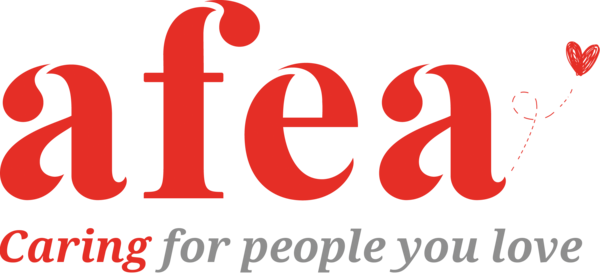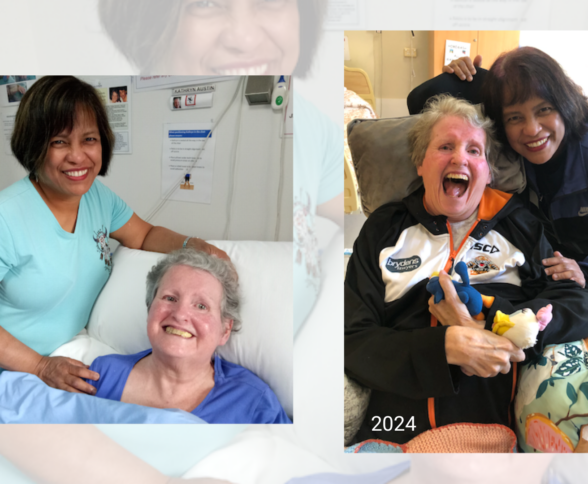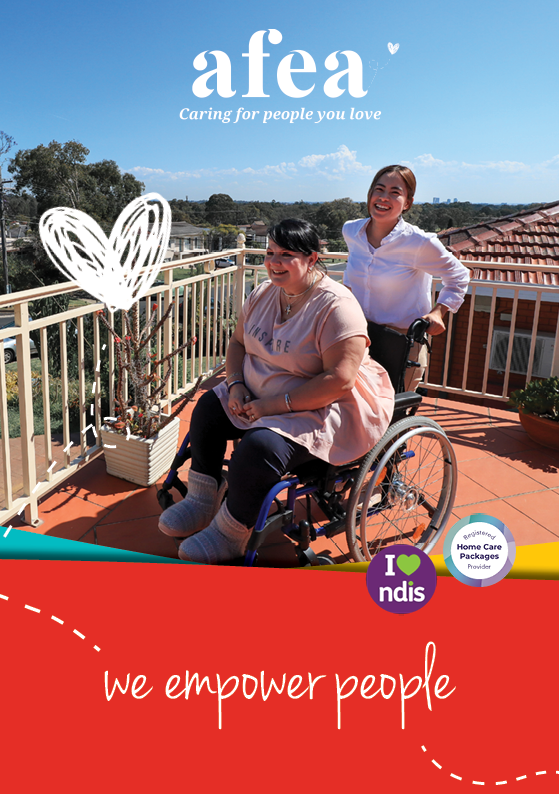Did you know that more than 250,000 Australians currently live with epilepsy? This Purple Day (26 March), we join the rest of the world in raising awareness about this condition.
Purple Day started as a grassroots movement driven by people living with epilepsy. It has now grown into a global initiative dedicated to raising epilepsy awareness. Purple Day also gives us a chance to dispel myths and increase support for people living with epilepsy.
We spoke with Lisa Todd, Clinical Governance and Policy Manager and Clinical Nurse Consultant at Epilepsy Action Australia, to talk about her personal journey and provide you more information about epilepsy this Purple Day.

About Epilepsy Action Australia
Epilepsy Action Australia is the leading and oldest provider of epilepsy services nationwide. They have provided our carers training on epilepsy and emergency medication administration to ensure our clients diagnosed with this condition are fully supported.
Lisa has been with Epilepsy Action Australia for the past 20 years and is involved in their NDIS service delivery. We’re grateful to Lisa for sharing her time and expertise!
Let’s Talk Epilepsy
Can you talk about your personal journey: why did you gravitate towards this line of work?
I always had an interest in the brain and when the opportunity arose to work in Neuro Intensive Care, I jumped at it even though it was daunting for a newly graduated nurse.
Unfortunately, we lost a young family friend with epilepsy as a result of drowning, and that has always driven me to learn more and raise awareness of epilepsy in the community.
What is epilepsy?
Epilepsy is a neurological disorder characterized by spontaneous recurrent seizures. Seizures result from a temporary disruption of the electrochemical activity in the brain. Epilepsy can start at any age, although it is more likely to be diagnosed in childhood or senior years.
Approximately 3 to 3.5% of Australians will be diagnosed with epilepsy at some point in their lives, while 30% of people with an intellectual disability will be diagnosed with epilepsy over their lifetime.
There are many different types of epilepsy and people’s experiences differ greatly. Some types of epilepsy are age-limited, and the person eventually stops having seizures. For others, epilepsy is a life-long condition.
Approximately two-thirds of people with epilepsy become seizure-free on the first or second medication they try, while others are diagnosed with drug-resistant epilepsy (DRE).
Seizures present in many ways, depending upon where the seizure activity starts and spreads through the brain. You may come across different types and presentations when supporting your clients with epilepsy.
These must be clearly described in the seizure management plan (SMP) so others can recognise the seizures when they occur.
Can you share some misconceptions that people have about epilepsy?
There are many misconceptions about epilepsy and seizures. One I can highlight is people believe everyone with epilepsy has convulsions, also known as tonic-clonic seizures.
The truth is that not all seizures present as convulsions. Seizures can appear as brief stares, fear or confusion, inappropriate responses or unusual repetitive behaviours. (Read more in this factsheet.)
What services does Epilepsy Action Australia provide to NDIS providers?
Epilepsy Action Australia contributed to and continues to contribute to the body of knowledge related to the NDIS Practice Alerts for epilepsy and the administration of emergency medication, such as midazolam.
Our Epilepsy Nurses offer a range of epilepsy-related support services for NDIS participants, ranging from
- assessment of the individual’s epilepsy related needs
- SUDEP and safety assessments and suggested safety devices – SUDEP or Sudden unexpected death in people with epilepsy is when a person with epilepsy dies suddenly and prematurely and no reason for death is found
- review and development of emergency response plans specifically for use by the client’s support workers
- nurse led staff training individualised to client needs via webinar and other services as the need is identified
Epilepsy Action Australia has a suite of short online courses for professionals working in the disability sector, starting with Epilepsy Essentials, which covers what epilepsy is, the types of seizures and how to recognise them, living with epilepsy, seizure safety and first aid.
For those wanting more, they can undertake the 50-hour nationally accredited Course in Epilepsy Management (11106NAT) which is made up of the core unit: Support individuals with epilepsy (NAT11106001) and two elective units: Respond to seizures in adults with intellectual disabilities (NAT11106003) and Administer emergency medications for seizures (NAT11106002).
Further information can be found here.
If there is one thing you would like caregivers and support workers of people with epilepsy to remember, what would it be?
Epilepsy is more common than you think, and there are services out there willing to help.
Epilepsy Action Australia has Epilepsy Nurses available 9-5, Monday to Friday, across Australia to answer your epilepsy-related questions on the free National Epilepsy Line 1300 374 537.
You can also email epilepsy@epilepsy.org.au or connect via epilepsy.org.au.
Thank you, Lisa! To learn more, please visit Epilepsy Action Australia.
Expert NDIS care from Afea
If you or someone you love have been diagnosed with epilepsy, Afea is here to support you.
Our amazing support workers will provide you with compassionate care at home and in the community to help you live more independently, achieve your goals and get the most out of life!
In addition to our compassionate Core support services—
- Afea’s Support Coordinators are committed to helping you achieve your goals, develop your skills and access the best services suited to your needs. Reduce the stress and time spent on implementing NDIS plans with the help of our amazing Support Coordinators!
- Our Plan Management team is your financial champion, ensuring your funding is used to its fullest potential.
Contact us now to begin receiving care.
You can also email us via hello@afea.com.au or call 1300 65 11 33.















